The 30-Second Takeaways:
🌱 Sustainics explores sustainable living techniques, emphasising the interconnectedness of all things. It draws inspiration from the field of Systemics, viewing our lives and societies as complex, interdependent systems.
🍽️ Conscious eating involves becoming aware of what we're currently consuming and its effects on our health. It's the first step towards making more intentional food choices.
🌍 The Western diet, characterised by processed and fast foods, has led to a global health crisis. It's linked to rising rates of chronic diseases such as diabetes, heart disease, and cancer.
🥗 Intentional eating goes beyond conscious eating, involving deliberate choices about our diet based on health needs, values, and broader environmental and social considerations.
🌿 Naturopathic practices view food as medicine, focusing on preventing diseases and maintaining bodily balance through diet and lifestyle choices. This approach complements rather than replaces modern medicine.
🌾 The current global food system, heavily reliant on corn, soy, and wheat production for animal feed, has significant environmental impacts. Exploring alternatives, including more plant-based diets, could lead to more sustainable food systems.
🔄 A radical reset in our relationship with food is needed. This involves reconnecting with ancestral wisdom while leveraging modern nutritional science for better personal and planetary health.
The Full Article
Welcome to Sustainics, a podcast dedicated to exploring sustainable ways of living and the techniques we can employ to promote them. I'm your host, and today we're delving into a topic that's fundamental to our existence: food and nutrition. Before we dive in, let's take a moment to reflect on our journey so far and the broader context of Sustainics.
In our first episode, we explored the concept of the Mending Spirit, encouraging a shift from a consumption-driven mindset to one focused on repair and restoration. This wasn't just about mending physical objects; we touched upon the importance of repairing relationships and even rehabilitating damaged ideas or ideologies. The Mending Spirit embodies a core principle of sustainability: the idea that we can extend the life and value of what we already have, rather than constantly seeking the new.
Our second episode took us to the vibrant local market in Gap, my hometown. There, we celebrated the diversity and nutritional richness of locally sourced, organic produce. This experience highlighted the importance of connecting with our food sources and supporting local, sustainable food systems. It served as a perfect prelude to our current topic, showcasing the real-world application of intentional eating.
These episodes, while diverse in topic, are united by the core principle of Sustainics: discussing and promoting sustainable lifestyles. The 'ics' in Sustainics serves a dual purpose. Firstly, it alludes to the techniques required for sustainable living - the practical, actionable steps we can take in our daily lives. Secondly, and perhaps more profoundly, it references the field of Systemics, a discipline that emphasises the interconnectedness of all things.
Systemics, a field I've been passionate about since early in my intellectual journey, provides a crucial framework for understanding sustainability. It teaches us to view the world as a complex web of interconnected systems, where each action has far-reaching consequences. This systemic thinking is essential when we consider topics like food and nutrition, as our dietary choices ripple out to affect not just our personal health, but also our communities, economies, and the global environment.
The Importance of Food in Sustainable Living
Today, we're circling back to the topic of food, a subject that's central to Sustainics. Our relationship with food is fundamental to who we are, how we behave, and ultimately, how we impact the world around us. In essence, we are open systems, constantly engaging in processes of intake and elimination. This isn't just about eating and excreting; it's about our continuous interaction with our environment through what we consume - be it food, water, or even the air we breathe.
Understanding and optimising these processes is key to natural, organic living. When we talk about food in the context of Sustainics, we're not just discussing personal nutrition. We're exploring how our food choices connect us to global systems of agriculture, trade, and environmental impact. We're examining how the food on our plates reflects our values, our culture, and our relationship with the planet.
The Two-Step Approach to Intentional Eating
Our exploration of food and nutrition will follow a two-step approach, designed to gradually shift our relationship with food from unconscious consumption to deliberate, value-aligned choices:
1. Conscious Eating: This first step involves becoming aware of what we're currently eating and how it affects us. It's about pausing to really look at what's on our plates, in our refrigerators, and on our pantry shelves. We'll examine the 'Western diet', primarily based on processed, industrial, and fast foods, and its devastating health consequences. This step is about awakening from the trance of mindless eating and beginning to question our food choices.
2. Intentional Eating: Building on this newfound awareness, we'll explore how to make deliberate choices about our diet. This goes beyond simply choosing foods based on nutritional content or taste preferences. Intentional eating involves considering not just our personal health, but also the environmental and social impacts of our food choices. It's about aligning our eating habits with our values and our understanding of our place within larger ecological and social systems.
The Western Diet: A Global Health Crisis
The Western diet, predominantly associated with American eating habits, has spread globally, leading to what many health professionals are calling the biggest pandemic ever seen: a rise in chronic diseases such as diabetes, heart disease, and cancer. This diet, characterised by processed foods high in sugar, unhealthy fats, and artificial additives, has disconnected us from the natural sources of our nutrition.
This disconnection goes beyond just the physical composition of our food. The Western diet has changed our relationship with eating itself. Meals are often rushed, eaten on the go or in front of screens. We've lost touch with the rhythms of hunger and satiety, often eating not because our bodies need nourishment, but because of emotional cues or marketing influences.
The health consequences of this dietary shift are staggering. Obesity rates have skyrocketed, with the World Health Organization reporting that worldwide obesity has nearly tripled since 1975. Type 2 diabetes, once called "adult-onset diabetes," is now being diagnosed in children. Heart disease remains the leading cause of death globally. Perhaps most alarmingly, we're seeing a generation of children who may, for the first time in modern history, have a shorter life expectancy than their parents.
But the impact of the Western diet extends beyond individual health. It's intrinsically linked to unsustainable agricultural practices, contributing to deforestation, water scarcity, and climate change. The demand for cheap, processed foods has led to the industrialisation of agriculture, with monocultures replacing diverse farming systems, and chemical pesticides and fertilisers degrading soil health and biodiversity.
The Path to Conscious Eating
Conscious eating is about reconnecting with our food. It involves taking the time to examine what's in our refrigerators, pantries, and on our plates. This isn't about judgement or immediate radical change; it's about cultivating awareness.
Start by really looking at your food before you eat it. Where did it come from? How many ingredients does it contain? Can you pronounce all of those ingredients? How does it make you feel after you eat it?
Be mindful during the act of eating. Put away distractions like phones or televisions. Pay attention to the taste, texture, and aroma of your food. Notice how your body feels as you eat. Are you eating because you're hungry, or for other reasons?
This process of becoming conscious about our eating habits can be eye-opening and sometimes uncomfortable. We might realise that we're relying heavily on processed foods, or that we're eating mindlessly throughout the day. But this awareness is the crucial first step towards change.
Moving Towards Intentional Eating
Intentional eating takes this awareness a step further. Once we're conscious of our current eating habits and their consequences, we can set intentions about the kind of food we want to consume. This doesn't necessarily mean adhering to any particular diet trend, but rather making informed choices based on our health needs, values, and understanding of food systems.
Intentional eating might involve choosing more whole, plant-based foods. It could mean opting for locally sourced produce to reduce the carbon footprint of your meals. It might include learning to cook more meals from scratch, or supporting restaurants and food producers whose values align with your own.
For some, intentional eating might lead to exploring different dietary approaches like vegetarianism, veganism, or the Mediterranean diet. For others, it might mean simply reducing processed food intake and increasing consumption of fruits and vegetables. The key is that these choices are made consciously, with an understanding of their implications for personal and planetary health.
Intentional eating also involves reconnecting with the pleasure and social aspects of food. It's about rediscovering the joy of cooking, the satisfaction of a meal shared with loved ones, and the cultural significance of traditional dishes. By bringing intention to our eating, we can transform it from a mundane necessity into a meaningful, enriching part of our lives.
Naturopathy and Food as Medicine
In our exploration of intentional eating, we'll draw insights from naturopathic practices, which view food as medicine. This approach focuses on preventing diseases and maintaining balance in the body through diet and lifestyle choices. It's not about replacing modern medicine, but rather complementing it with natural, preventive practices.
The concept of food as medicine isn't new; it dates back to ancient healing traditions around the world. Hippocrates, often considered the father of modern medicine, famously said, "Let food be thy medicine and medicine be thy food." Today, modern science is catching up, with numerous studies demonstrating the profound impact of diet on health outcomes.
Naturopathic approaches emphasise the importance of whole, nutrient-dense foods. They often recommend a diet rich in fruits, vegetables, whole grains, and lean proteins. This aligns with what we know about the health benefits of plant-based diets, which have been shown to reduce the risk of chronic diseases like heart disease, diabetes, and certain cancers.
But naturopathy goes beyond just recommending certain foods. It emphasises the importance of how we eat as well. This includes practices like thorough chewing, eating in a relaxed state, and paying attention to how different foods make us feel. These practices align closely with the principles of conscious and intentional eating.
Moreover, naturopathic approaches often consider the individual's unique needs and constitution. This personalised approach to nutrition recognises that there's no one-size-fits-all diet that works for everyone. It encourages us to tune into our bodies and understand how different foods affect us personally.
Beyond Personal Health: Environmental and Social Considerations
As we explore intentional eating, we must consider the broader implications of our food choices. How is our food produced? What impact does it have on the environment? Are our food systems socially just?
The current global food system is a major contributor to climate change, responsible for up to 30% of total greenhouse gas emissions. This includes emissions from agriculture, food processing, packaging, and transportation. Our food choices can either perpetuate this system or help to change it.
For example, choosing plant-based meals more often can significantly reduce your carbon footprint. The production of animal products, especially beef, is a major source of greenhouse gas emissions. By reducing our consumption of these products, we can make a real impact on our personal environmental footprint.
But it's not just about what we eat; it's also about where our food comes from. Supporting local food systems can reduce the emissions associated with long-distance food transportation. It also helps to build more resilient local economies and can foster a greater sense of community connection.
We must also consider the social justice aspects of our food system. Many farm workers around the world face poor working conditions and low wages. By choosing Fair Trade products or supporting local farmers who treat their workers ethically, we can use our purchasing power to promote social justice.
Food waste is another critical issue. In the United States alone, up to 40% of food goes uneaten. By being more intentional about our food purchases and use, we can reduce this waste, conserving both resources and money.
The Global Food System: Challenges and Alternatives
To fully understand the implications of our food choices, we need to examine the current global food system. This system is heavily reliant on the production of a few key crops - primarily corn, soy, and wheat. A large portion of these crops isn't grown for direct human consumption, but rather for animal feed or to produce processed food ingredients.
This system has significant environmental impacts. Monoculture farming depletes soil health and reduces biodiversity. The heavy use of chemical fertilisers and pesticides pollutes waterways and contributes to the decline of important species like bees. Factory farming of animals is a major source of greenhouse gas emissions and often involves poor animal welfare practices.
Moreover, this global food system has made us dangerously dependent on long, complex supply chains. The COVID-19 pandemic exposed the fragility of this system, with disruptions leading to food shortages in many areas.
But alternatives exist. Regenerative agriculture practices work with nature rather than against it, building soil health and sequestering carbon. Agroforestry systems combine trees and shrubs with crops or livestock, enhancing biodiversity and resilience. Urban farming initiatives are bringing food production back into cities, reducing food miles and reconnecting people with their food sources.
As consumers, we can support these alternative systems through our food choices. By opting for foods produced using sustainable methods, we can help drive change in the agricultural sector. This might involve choosing organic products, supporting local farmers markets, or even growing some of our own food.
A shift towards more plant-based diets is another powerful way to address the environmental impacts of our food system. Plant-based diets typically have a much lower environmental footprint than diets high in animal products. This doesn't necessarily mean becoming fully vegan or vegetarian; even small shifts towards more plant-based meals can make a significant difference.
Interestingly, this shift towards more plant-based eating aligns closely with what we know about our ancestral diets. Contrary to popular belief, many of our ancestors relied primarily on plant foods, with meat playing a smaller role in their diets. By increasing our consumption of diverse plant foods, we may be moving closer to the diet that our bodies evolved to thrive on.
Conclusion: A Call for Radical Reset
Ultimately, this exploration of intentional eating is a call for a radical reset in our relationship with food. It's an invitation to reconnect with the wisdom of our ancestors while leveraging modern nutritional science. By making conscious, intentional choices about what we eat, we have the power to transform not just our personal health, but also our communities and our planet.
This reset isn't about following a strict diet or adhering to rigid rules. It's about developing a more mindful, intentional approach to eating that considers the broader implications of our food choices. It's about rediscovering the pleasure of real, whole foods, the satisfaction of cooking, and the joy of sharing meals with others.
As we embark on this journey together, I encourage you to reflect on your own relationship with food. How has it been shaped by your culture, your upbringing, and the society you live in? What changes might you want to make to align your eating habits more closely with your values and health goals?
Remember, every meal is an opportunity. An opportunity to nourish your body, to connect with others, to support sustainable practices, and to make choices that align with your values. Small changes, consistently applied, can lead to significant transformations over time.
In future episodes, we'll delve deeper into specific aspects of intentional eating. We'll explore different dietary approaches, discuss sustainable food production methods, and look at ways to overcome common obstacles to changing our eating habits. We'll also examine how intentional eating fits into the broader context of sustainable living, connecting it with other aspects of Sustainics like mindful consumption, community building, and environmental stewardship.
Thank you for joining me on this exploration of intentional eating. I invite you to start paying more attention to your food choices, to get curious about where your food comes from and how it affects you. Share your experiences and insights with others. Together, we can create a ripple effect of change, moving towards a more sustainable, healthier future for ourselves and our planet.
Stay tuned for more episodes as we continue to explore the interconnected paths to a more sustainable future. Until then, I invite you to start thinking intentionally about your next meal. What will you choose, and why? How might that choice affect your health, your community, and the world around you? The journey to more intentional eating starts with a single bite. Here's to making it count.
Thanks and acknowledgements
🌱 This Podcast was produced with passion and love in green Geneva, Switzerland. It is proudly sponsored by Valeris Coaching, and primarily produced and delivered by senior coach Lucas Challamel, as part of his YouTube channel, The Camel Hall.
🧠 https://poe.com/Claude-3-Opus, contributed to brainstorming and as a sounding board for some conceptual propositions.
🎨 The video was patiently edited with the free version of CapCut, including sound fx, stickers and automated captions (Such a great feature!)
🌿 Welcome to "Sustainics," a thought-provoking and informative YouTube channel dedicated to exploring the world of sustainable living and our intricate relationship with the environment. In today's rapidly changing world, it is more important than ever to examine our habits, choices, and the impact we have on the planet. Through this channel, we aim to inspire and guide you on a journey towards a more sustainable and balanced way of life.
🌳 At "Sustainics," we believe that the way we interact with our environment is a reflection of our inner selves. By cultivating a deeper understanding and appreciation for the natural world around us, we can not only contribute to the well-being of the planet but also enrich our own lives in countless ways. Our content covers a wide range of topics, including sustainable nutrition, eco-friendly construction techniques, organic gardening, and fostering meaningful connections with the flora and fauna that surround us.
💡 We understand that the path to sustainability is not always clear-cut, and that's why we are here to provide you with practical tips, expert insights, and real-life examples of individuals and communities who are making a difference. Whether you're a seasoned environmentalist or just starting to explore the concept of sustainable living, "Sustainics" has something for everyone.
🎥 Through our engaging videos, in-depth interviews, and thought-provoking discussions, we aim to create a community of like-minded individuals who are passionate about creating positive change. We believe that by sharing our knowledge, experiences, and ideas, we can collectively work towards a more sustainable future.
🌏 But "Sustainics" is about more than just the environment; it's about recognizing the interconnectedness of all aspects of our lives. We explore how our relationships with the natural world can influence our mindset, leadership style, and ability to innovate and think creatively. By nurturing a more harmonious relationship with our environment, we can unlock our full potential and create a more balanced and fulfilling life.
🚀 Join us on this exciting journey as we delve into the world of sustainable living, uncover the beauty and wisdom of the natural world, and work together to create a brighter, greener future for generations to come. Subscribe to "Sustainics" today and become part of a growing community of individuals who are passionate about making a difference, one small step at a time.






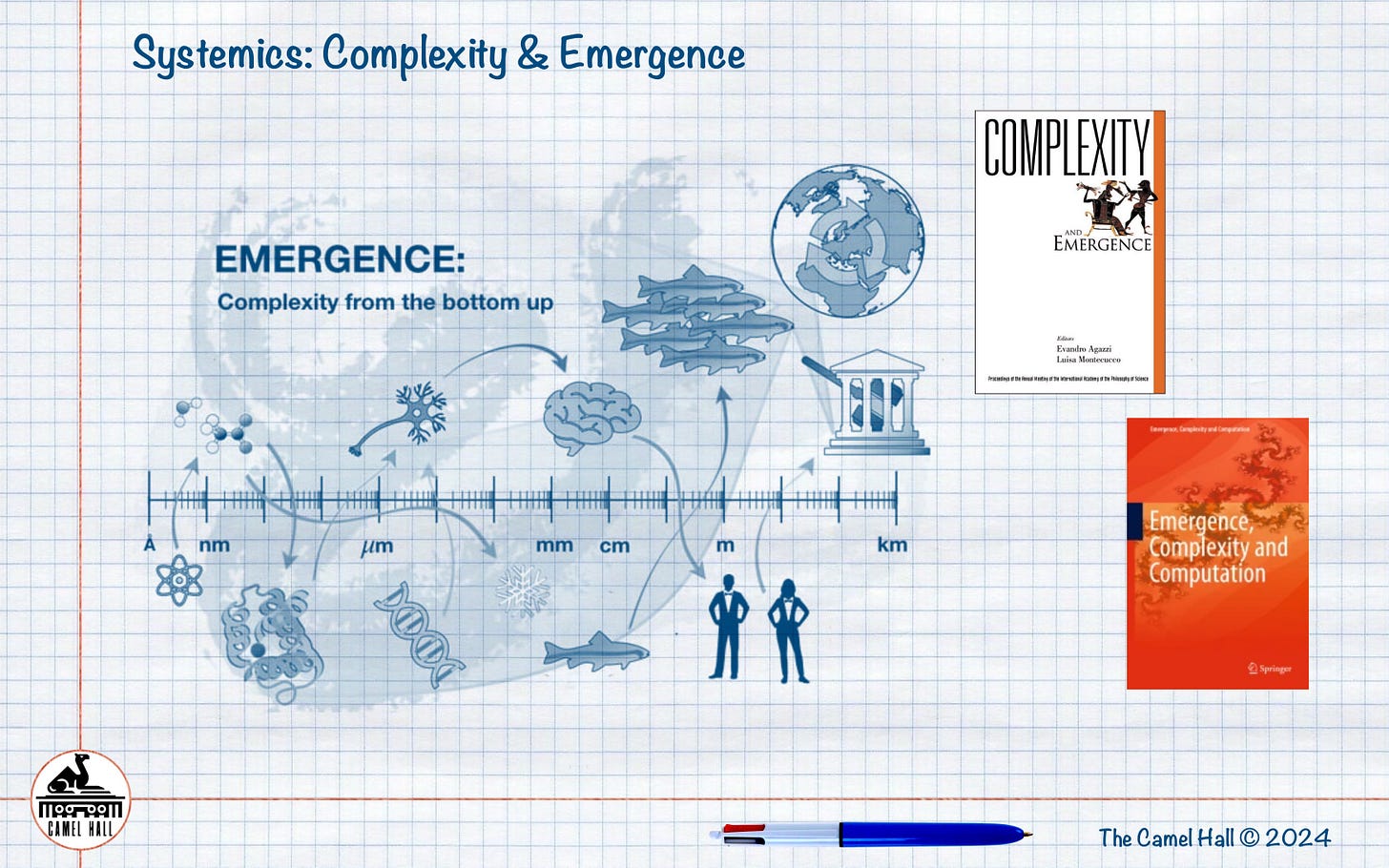
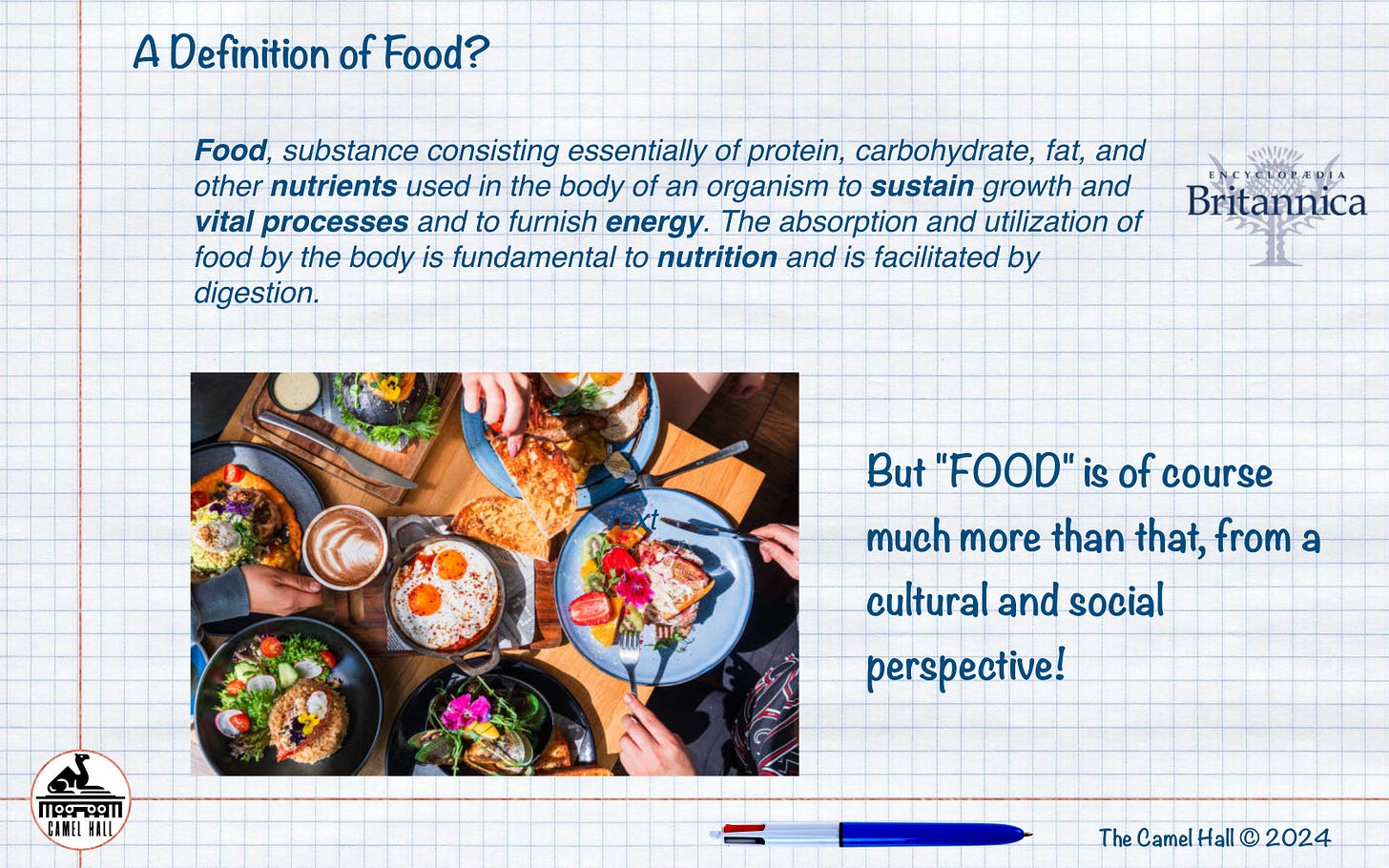
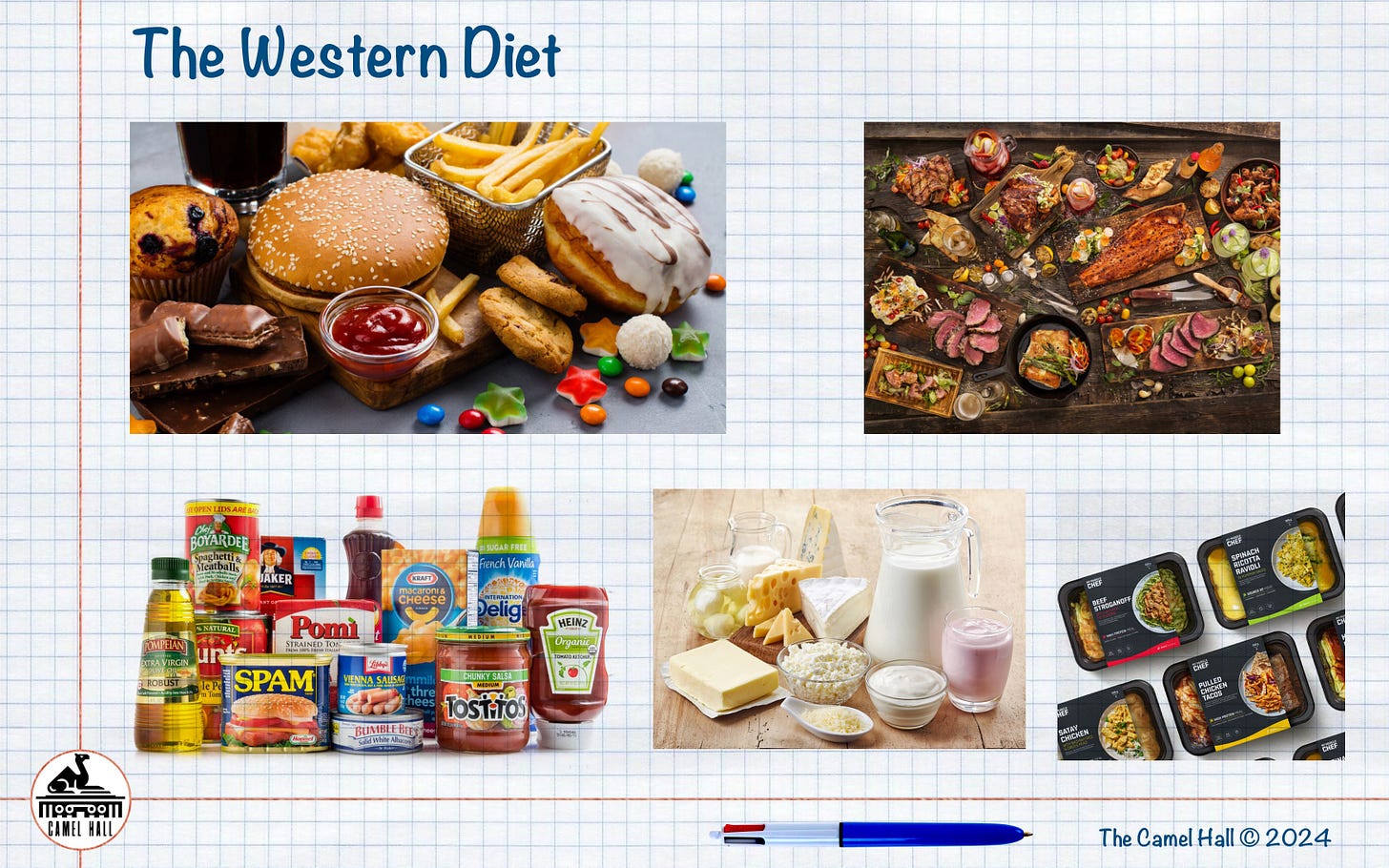
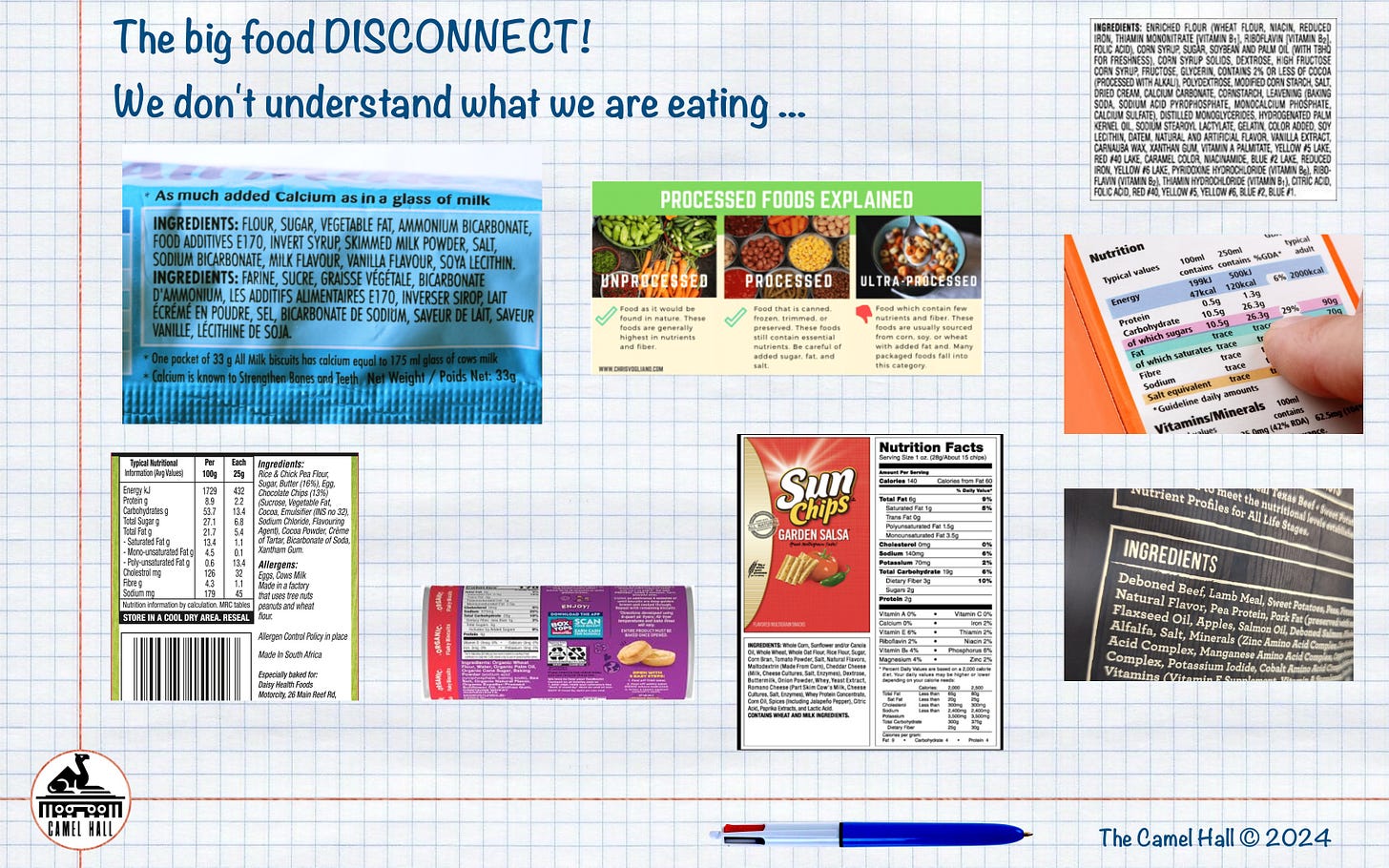
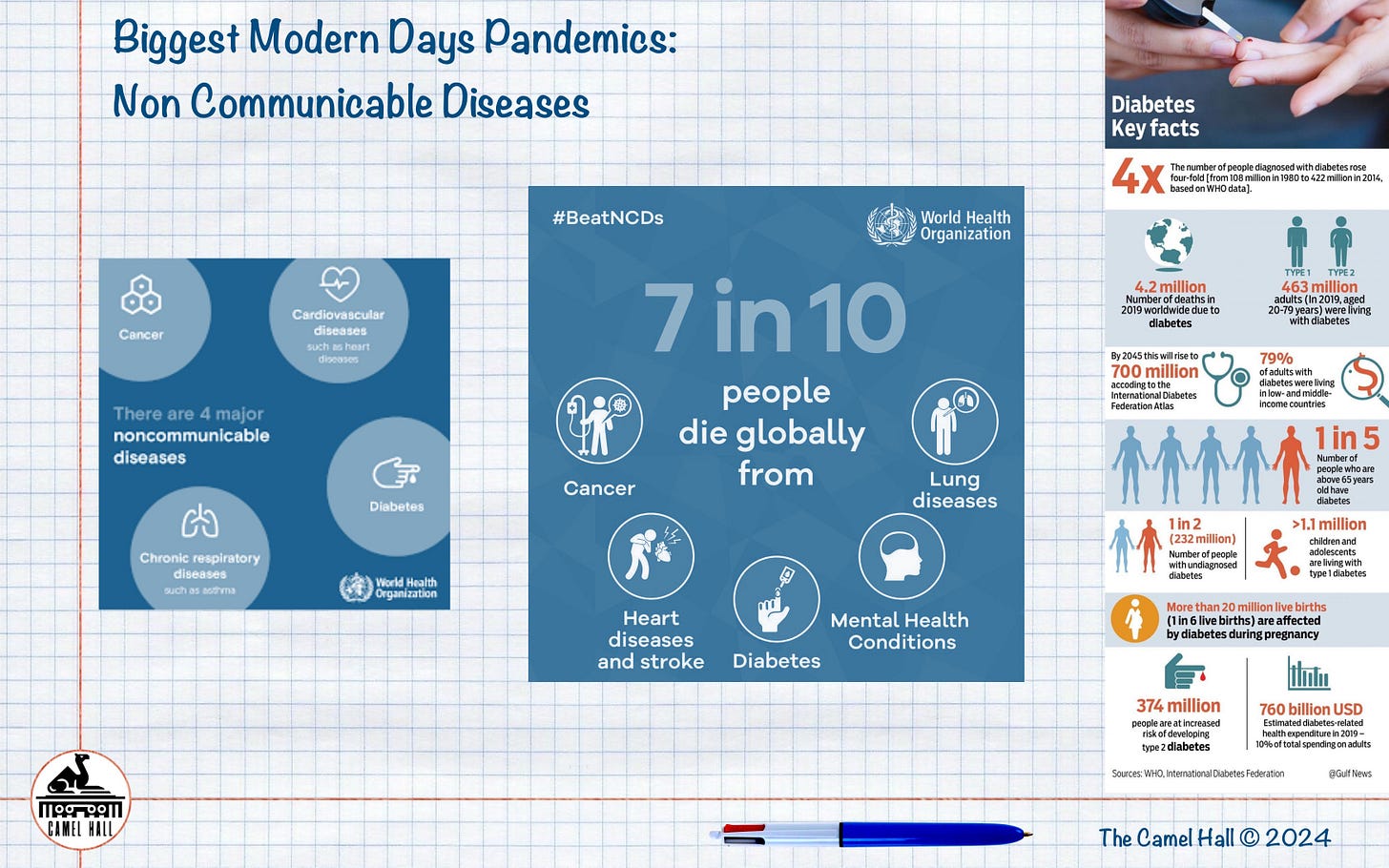



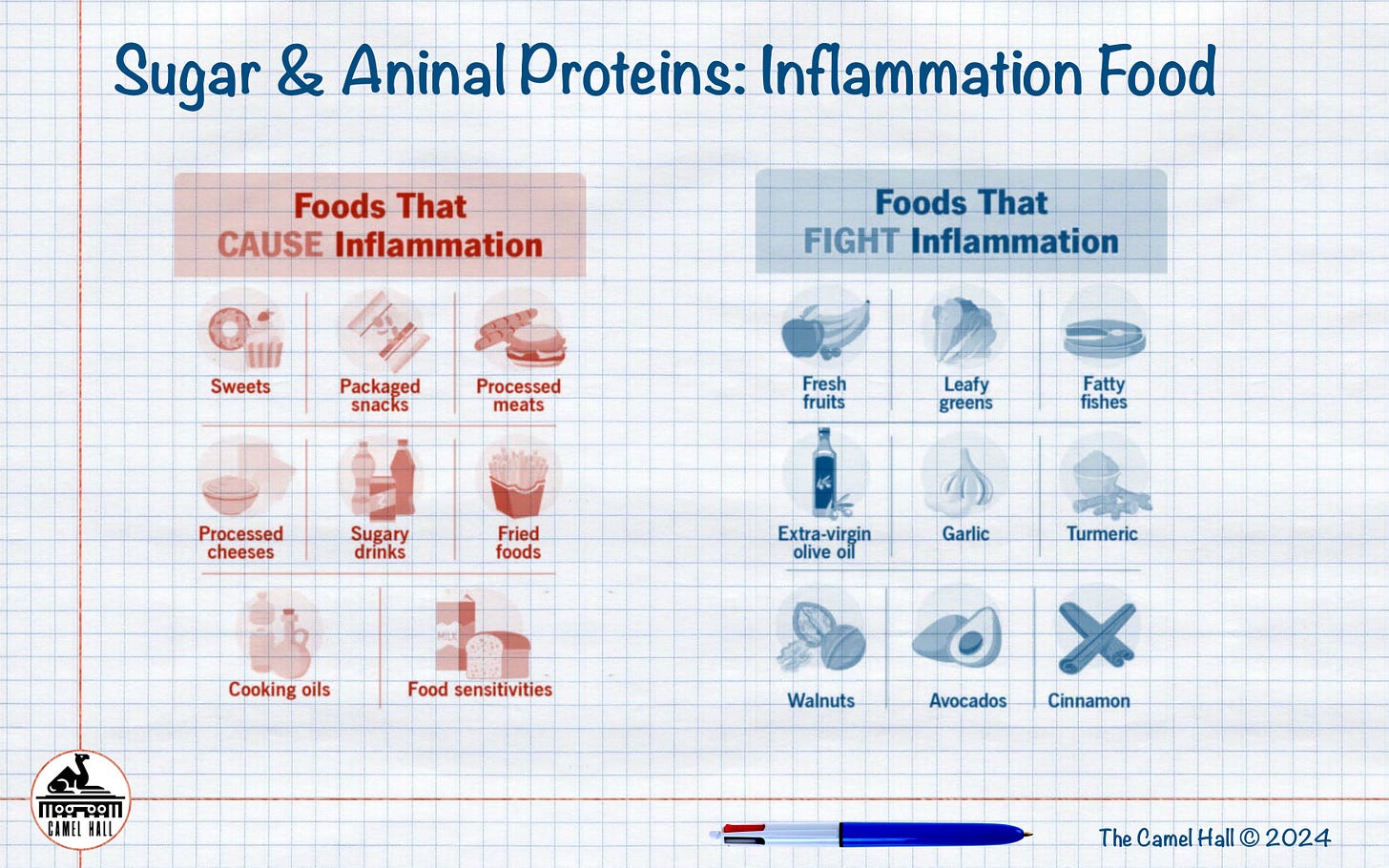

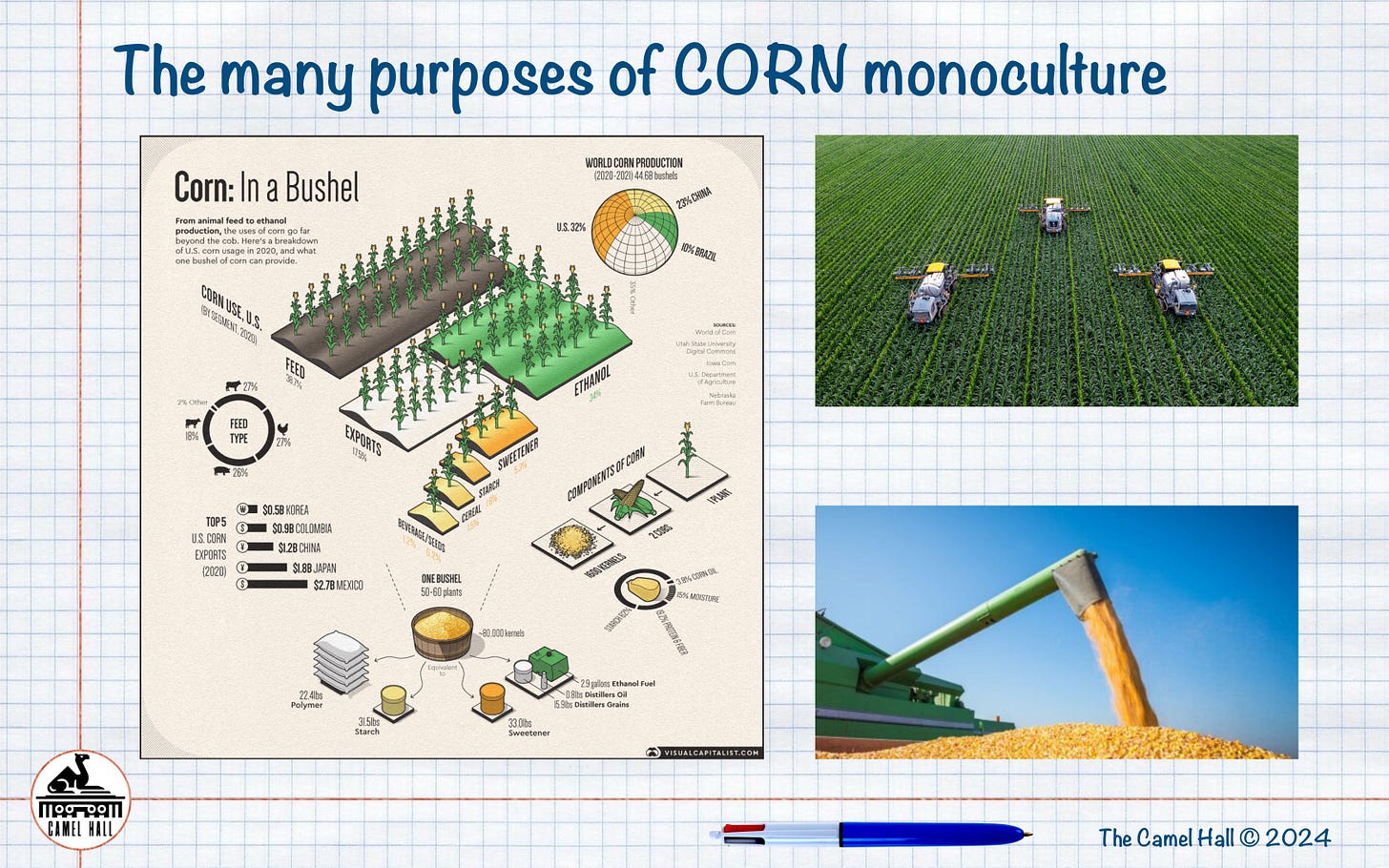
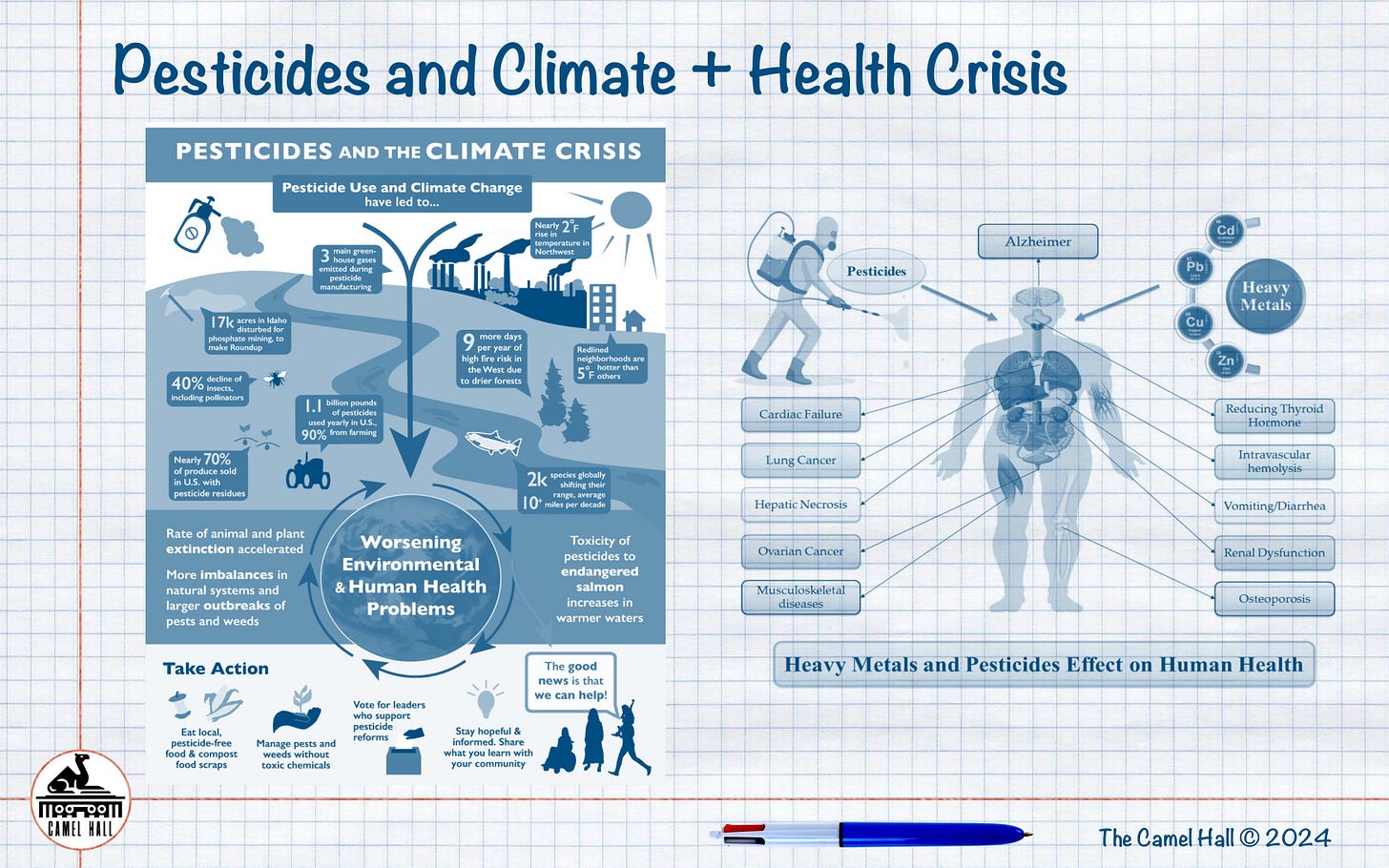


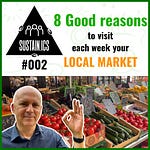
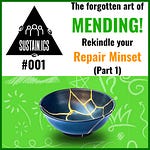
Share this post